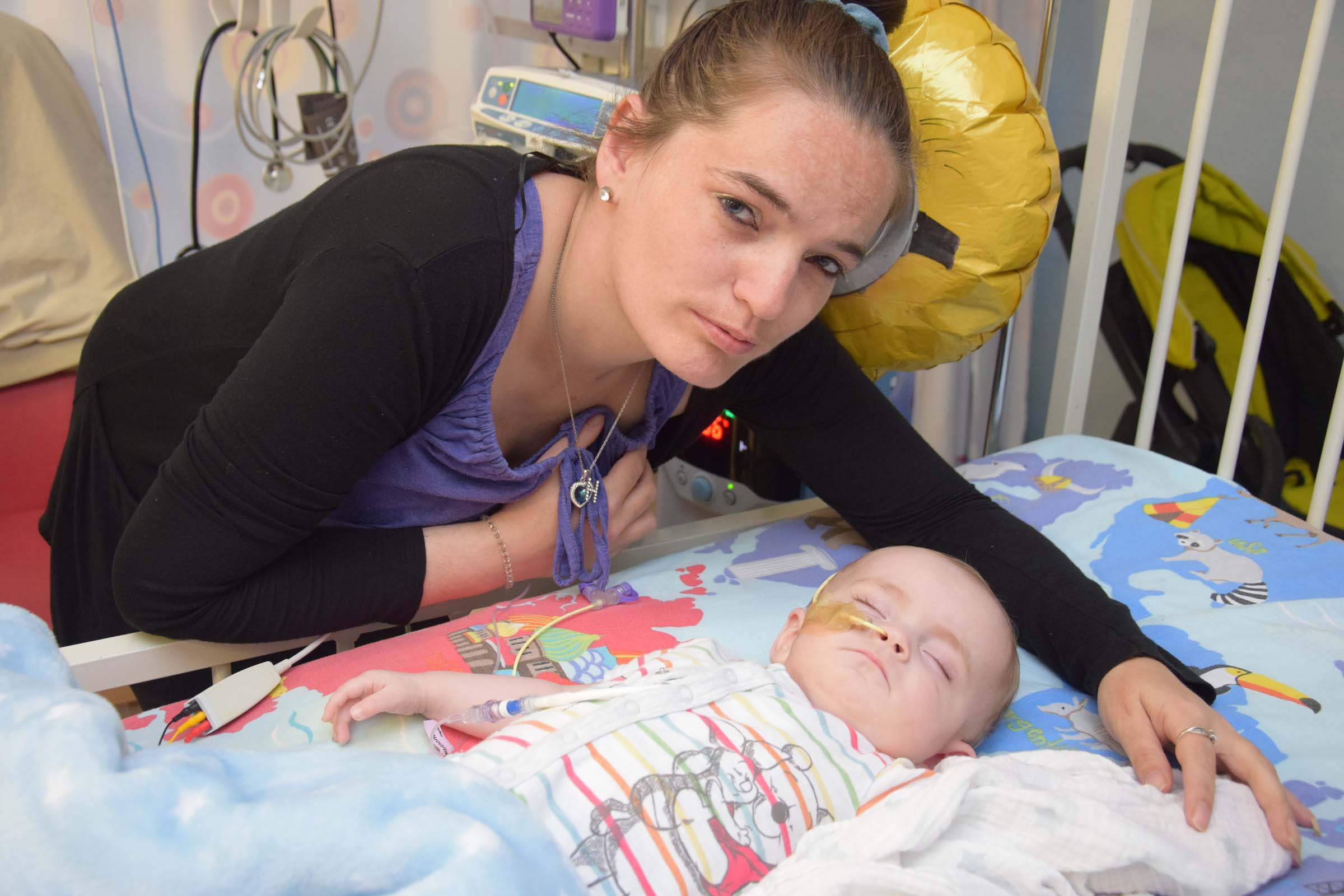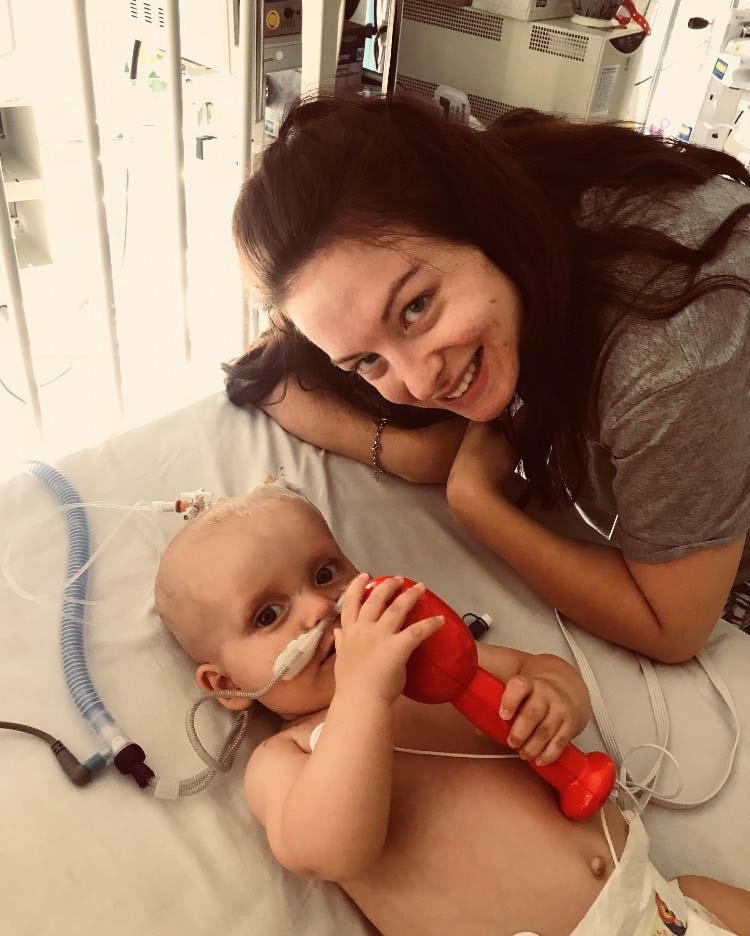Register as an organ donor
Record your decision to donate your organs
New figures show parents are significantly less likely to donate their child’s organs for lifesaving transplants, which limits the number of organs available for children on the transplant waiting list.
The statistics, released by NHS Blood and Transplant for Organ Donation Week, shows only 48% of families supported donation for a relative aged 17 and under last year. That compares to an average of 66% families agreeing for relatives of all ages. The figures have also remained largely static, despite the overall increase in organ donation. (1)
For some children on the waiting list, a young donor is their only hope. Hearts and lungs in particular need to be matched by size because of the limited space inside the chest, and also to ensure the two organs have comparable strength and do not overwhelm or underpower each other. (2)
The shortage of suitable donors means children waiting for an urgent heart transplant will wait two and half times as long as adults waiting on the urgent waiting list. (3). In the last three years, 46 children have died on the transplant waiting list. Of these, 30 were waiting for a heart or lung transplant. (4)
 Harry Clarke, who turns eight months old during Organ Donation Week, is at Newcastle’s Freeman Hospital with dilated cardiomyopathy, and his only option is a heart transplant from another child.
Harry Clarke, who turns eight months old during Organ Donation Week, is at Newcastle’s Freeman Hospital with dilated cardiomyopathy, and his only option is a heart transplant from another child.
His parents Kerrie and Rob, have uprooted their lives in Birmingham to be by Harry’s side. They know that their only hope will be the parents of another child saying ‘yes’ to organ donation at a time of personal tragedy.
“We’d hope that family can look at it as an opportunity for their heart to live on through our son,” said Kerrie.
“Looking at him without his wires, you wouldn’t know he was ill some days. Until you go through this and see how many babies are suffering with heart problems, considering organ donation probably doesn’t even cross your mind but it’s really important to have those conversations.”
 Oscar Dunkley, from Redhill in Bournemouth, who turns one next week, is currently under the care of Southampton Hospital and Great Ormond Street Hospital, also for dilated cardiomyopathy.
Oscar Dunkley, from Redhill in Bournemouth, who turns one next week, is currently under the care of Southampton Hospital and Great Ormond Street Hospital, also for dilated cardiomyopathy.
His family have been told it will be a matter of time before he is added to the transplant waiting list. They have been told that at Oscar’s age, he’d only be able to receive a transplant from a child a maximum of a couple of years older than himself.
Abbie said: “We don’t know if he will be okay for four weeks, four months, or four years. It’s really hard for them to predict.”
Abbie, who lives with her partner Josh Dunkley and their oldest son Jack, said she had never thought about organ donation before Oscar’s illness.
She said: “I campaign for it now and I can understand how people don’t think about it because I didn’t either. People don’t realise how serious it is until you are in that position. I can understand people feel unsure about donating their child’s organs but young children can only get a transplant from another child.”
Currently, children can join the NHS Organ Donor Register, although those with parental responsibility must give consent for donation after they die. Children in Scotland can self-authorise from 12 years of age. Parents can also choose to add their children to the NHS organ Donor Register at any age. (5)
The overall number of young donors is remaining relatively static at a time when the number of adult organ donors is quickly rising. There were 57 donors aged 17 and under last year, compared to 55 in 2013/14. During the same period, the overall number of deceased organ donors rose by 20%.
Angie Scales, NHS Blood and Transplant Lead Nurse for Paediatric Donation, said: “For many children on the transplant waiting list, their only hope is the parent of another child saying ‘yes’ to organ donation at a time of terrible personal grief.
“Organ donation can offer comfort to the families of donors through the knowledge that something remarkable came from their loss. There are many children alive today thanks to parents making the decision to donate when saying goodbye to their own child.
“Words save lives and we’d ask families this Organ Donation Week to talk about whether they’d want to save lives through organ donation if the unthinkable happened. We know that many children respond positively to the idea of organ donation so please talk about this important and lifesaving subject.”
Dr Simon Steel, Consultant in Paediatric Intensive Care Anaesthesia at Sheffield Children's NHS Foundation Trust said: “Looking after children comes with its own set of unique considerations and challenges. The death of a child will have a profound impact on the child’s family and upon all the professionals involved in that child’s care.
“I see how devastating it is losing a child, but I also know the profound comfort that a child donors family can take in knowing that they have helped save the lives of others. Every family of a child who is approaching the end of life, and has the potential to donate organs or tissues after death, has the right to be offered this choice.”
Ends
Press release notes
Notes to editors